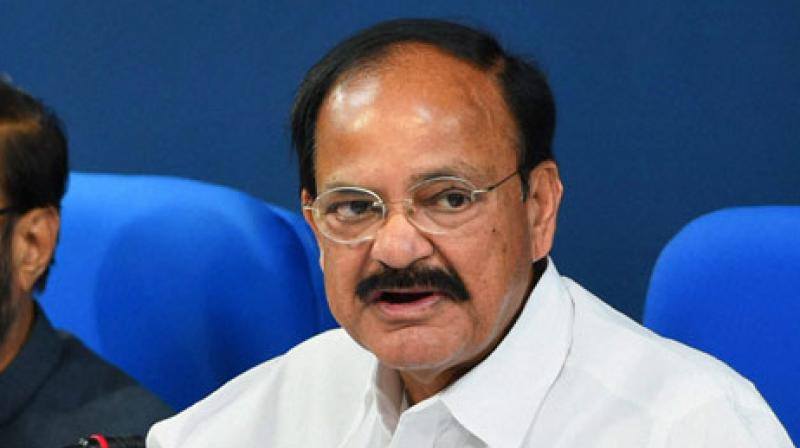Excesses of Emergency should be part of curriculum: Vice President

Rajya Sabha Chairperson M. Venkaiah Naidu (File Photo)
Rajya Sabha Chairperson M. Venkaiah Naidu (File Photo)
New Delhi : Vice President M. Venkaiah Naidu on Monday said it was time the “dark age of Emergency” became a part of the curriculum so that the young learnt to value the democratic freedoms they enjoy.
Naidu stressed that a crucial lesson of Emergency was that it was the responsibility of each citizen to uphold liberties and freedom of fellow citizens and that “intolerance” should not be accepted.
Speaking at the release of the Hindi, Kannada, Telugu and Gujarati versions of the Book ‘Emergency: Indian Democracy’s Darkest Hour’, Naidu said: “It is time the dark age of Emergency becomes a part of the curriculum so that present generations are sensitised to the dreaded events of 1975-77 and they learn to value the democratic and personal freedoms they enjoy today.”
“While our history books and textbooks talk of medieval dark days and the British Raj, the fallacious causes and consequences of Emergency is not made a part of the learning of the young,” he added.
Emergency was clamped by then Prime Minister Indira Gandhi on June 25, 1975 and citizens’ fundamental rights were suspended. It was lifted with the 1977 general election.
Naidu lamented that even the Supreme Court became “a mute party to placing some individuals above the law”.
“It was only Justice H.R. Khanna that dared to differ with the government’s position … and asserted that ‘the Constitution and the law of India does not permit life and liberty to be at the mercy of the absolute power of the Executive’.
“He paid a price for his conscience by losing out on the office of the Chief Justice of India. I see him as one of the great heroes of what I call the second freedom struggle. The other being Ramnath Goenka of the Indian Express,” Naidu said.
He said the one good thing that flowed from the Emergency was “an unequivocal assertion” by the people that they value their freedom “much more than their bread”.
“We need to keep this spirit alive,” he said.
“We need to guard against ‘intolerance’ on the part of certain misguided citizens. We have been occasionally witnessing such words and deeds of intolerance by some citizens in the name of so-called cow protection, Love Jihad, eating habits, watching films…
“Such incidents lead us to the point that individual freedoms can be in full play only when every citizen respects such freedoms of fellow citizens… The core Indian values and ethos have no place for intolerance.”
He said post Emergency, the State “would think twice before riding roughshod over the liberties and freedoms of citizens”.
“On the 43rd anniversary of the Emergency, I would like the message to go out that any citizen who violates the freedoms of fellow citizen would have no right to be called an Indian. It is because he is hurting the Constitution of India and all that India stood for ages.”
Naidu recalled that “in the name of internal disturbance”, those seen as a threat to the government were jailed.
They included Jayaprakash Narayan, Morarji Desai, Biju Patnaik, Atal Bihari Vajpayee, L.K. Advani, Chandra Shekhar, Charan Singh, Nanaji Deshmukh, Balasaheb Deoras, H.D. Deve Gowda, Ram Vilas Paswan and Nitish Kumar among others.
Naidu said he himself went underground for two months, coordinating resistance to the Emergency but was then arrested and jailed for over 17 months.
Naidu said those jailed during the Emergency also include several current Union Ministers such as Arun Jaitely, Ananth Kumar, Ravi Shankar Prasad and Prakash Javdekar.
IANS




